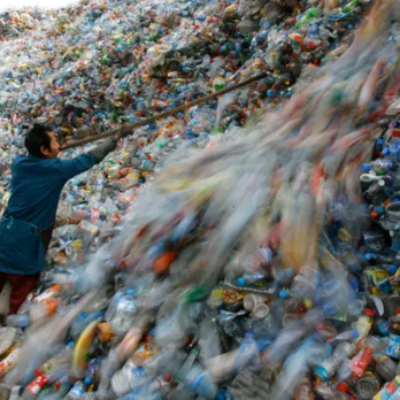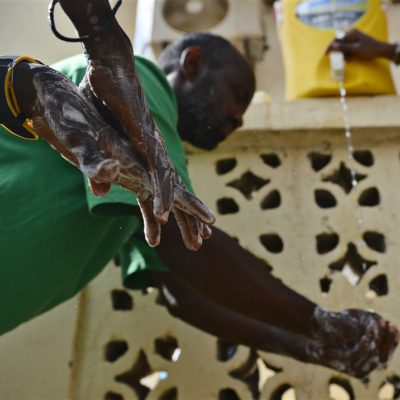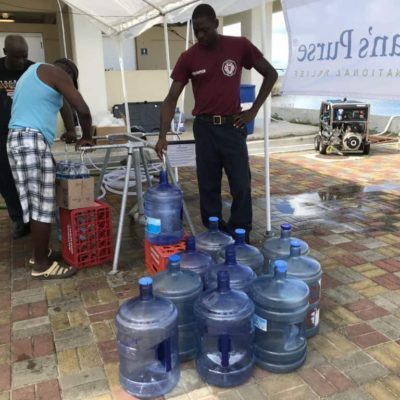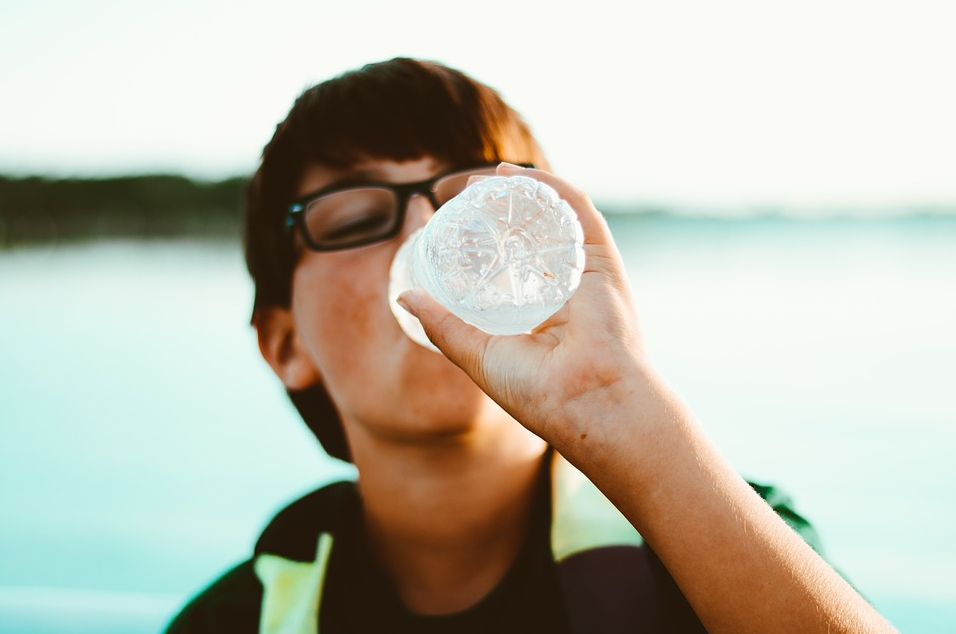
HYDRATION MATTERS!
Which is more important, food or water? Everyone knows that going without food might be uncomfortable, but that going without water will be deadly.
“Without water, humans can survive only for days. Water comprises from 75% body weight in infants to 55% in elderly and is essential for cellular homeostasis and life” (NCBI).
“Eight glasses a day”
The importance of staying hydrated is common knowledge. From childhood we are taught to drink water regularly when we play, exercise and eat.
According to Harvard, “Drinking enough water each day is crucial for many reasons: to regulate body temperature, keep joints lubricated, prevent infections, deliver nutrients to cells, and keep organs functioning properly. Being well-hydrated also improves sleep quality, cognition, and mood.”
The consequences of mild dehydration may include irritating, but rarely dangerous, effects such as constipation or headache. We are able to address dehydration with a turn of the tap.
However, the ability to easily and safely achieve optimal hydration is a privilege not always afforded to people of developing nations.
In fact, one in three people globally do not have access to safe drinking water.
“Dehydration is a major cause of morbidity and mortality in infants and young children worldwide. Each year approximately 760,000 children die of diarrheal disease worldwide” (NCBI).
At ANSA North America, our mission is anchored in worldwide access to our most valuable resource: Clean Water.
“As undoubtedly the most important nutrient and the only one whose absence will be lethal within days, understanding of water measurement and requirements are very important. The effects of water on daily performance and short and long-term health are quite clear. There are few negative effects of water intake and the evidence of positive effects is quite clear from the literature” (NCBI).
Dehydration Dangers
“Dehydration can be a serious condition that can lead to problems ranging from swollen feet or a headache to life-threatening illnesses such as heat stroke” (AHA).
While mild dehydration may be easily remedied, people without regular access to clean water will quickly find themselves in danger of moderate and chronic dehydration.
“Water, or its lack (dehydration), can influence cognition. Mild levels of dehydration can produce disruptions in mood and cognitive functioning. This may be of special concern in the very young, very old, [and] those in hot climates.
As with physical functioning, mild to moderate levels of dehydration can impair performance on tasks such as short-term memory, perceptual discrimination, arithmetic ability, visuomotor tracking, and psychomotor skills” (NCBI).
Dehydration can also have deleterious impacts on gastrointestinal function, kidney function, and heart function.
According to the Mayo Clinic, “Dehydration can lead to serious complications, including:
- Heat injury.
- Urinary and kidney problems. Prolonged or repeated bouts of dehydration can cause urinary tract infections, kidney stones and even kidney failure.
- Seizures.
- Low blood volume shock (hypovolemic shock). This is one of the most serious, and sometimes life-threatening, complications of dehydration. It occurs when low blood volume causes a drop in blood pressure and a drop in the amount of oxygen in your body.”
Turn it Around
In cooperation with ANSA North America, what can you provide for people in need of clean, pure water? Nothing short of life, good health and excellent body function. What could be more important, and more rewarding?
“Proper hydration is essential for maintaining optimal health. By maintaining body fluid balance, some researchers believe that the risks of certain diseases, infections, kidney stones, and possibly even some cancers can be reduced” (ACSM).
When we treat our bodies to fresh, pure water, such as that produced by HydroVolt Water Purifiers, we protect our bodies, including our heart and kidneys.
“The kidneys thus play a key role in regulating fluid balance. If the kidneys economize on water, producing a more concentrated urine, there is a greater cost in energy and more wear on their tissues. This is especially likely to occur when the kidneys are under stress, for example when the diet contains excessive amounts of salt or toxic substances that need to be eliminated. Consequently, drinking enough water helps protect this vital organ” (NCBI).
Millions of people do indeed have toxic substances in their diet and drinking water.
Low-Quality H2O
According to the United Nations, “Declining water quality has become a global issue of concern as human populations grow, industrial and agricultural activities expand, and climate change threatens to cause major alterations to the hydrological cycle.”
Additionally, 2 million tons of sewage and other wastes drain into the world’s waters every day. “Every year, more people die from unsafe water than from all forms of violence, including war. The most significant sources of water pollution are lack of inadequate treatment of human wastes and inadequately managed and treated industrial and agricultural wastes” (UN).
Despite these challenges, there is hope. Countless governments and organizations, including ANSA NA, are on the ground to address this most important universal need, backed by worldwide acknowledgment and commitment to solving our water problems.
“In 2010, the UN General Assembly explicitly recognized the human right to water and sanitation. Everyone has the right to sufficient, continuous, safe, acceptable, physically accessible, and affordable water for personal and domestic use” (WHO).
Join Together
According to Doctors Roy M. Vega and Usha Avva, “Diarrheal diseases and resulting severe dehydration are the leading cause of infant mortality worldwide especially in children less than five years of age. This burden is even higher among children in developing countries.
“To improve the outcome and decrease the morbidity and mortality from the diarrheal diseases, especially Rotaviral disease which is the leading cause of death in children, we need cooperation between various different agencies and countries.”
Many organizations are attempting to solve this problem, but more work and resources are required. NGOs and relief organizations need solutions and technology for on-site water & power for humanitarian uses.
ANSA North America provides portable water purification, enhanced water solutions, and power generation technologies for humanitarian missions and disaster relief worldwide.
The World Health Organization says, “Safe and readily available water is important for public health, whether it is used for drinking, domestic use, food production or recreational purposes.”
Be a partner in global health and contact us today.
Sources
American Heart Association
Staying Hydrated – Staying Healthy | American Heart Association
NCBI
Water, Hydration and Health (nih.gov)
Pediatric Dehydration – StatPearls – NCBI Bookshelf (nih.gov)
ACSM
Drink Up!: The Science of Hydration : ACSM’s Health & Fitness Journal (lww.com)
Harvard University
The importance of hydration | News | Harvard T.H. Chan School of Public Health
Mayo Clinic
Dehydration – Symptoms and causes – Mayo Clinic
UN
Water quality | International Decade for Action ‘Water for Life’ 2005-2015 (un.org)
CDC
Drinking Water Frequently Asked Questions (FAQs) | Drinking Water | Healthy Water | CDC
WHO
